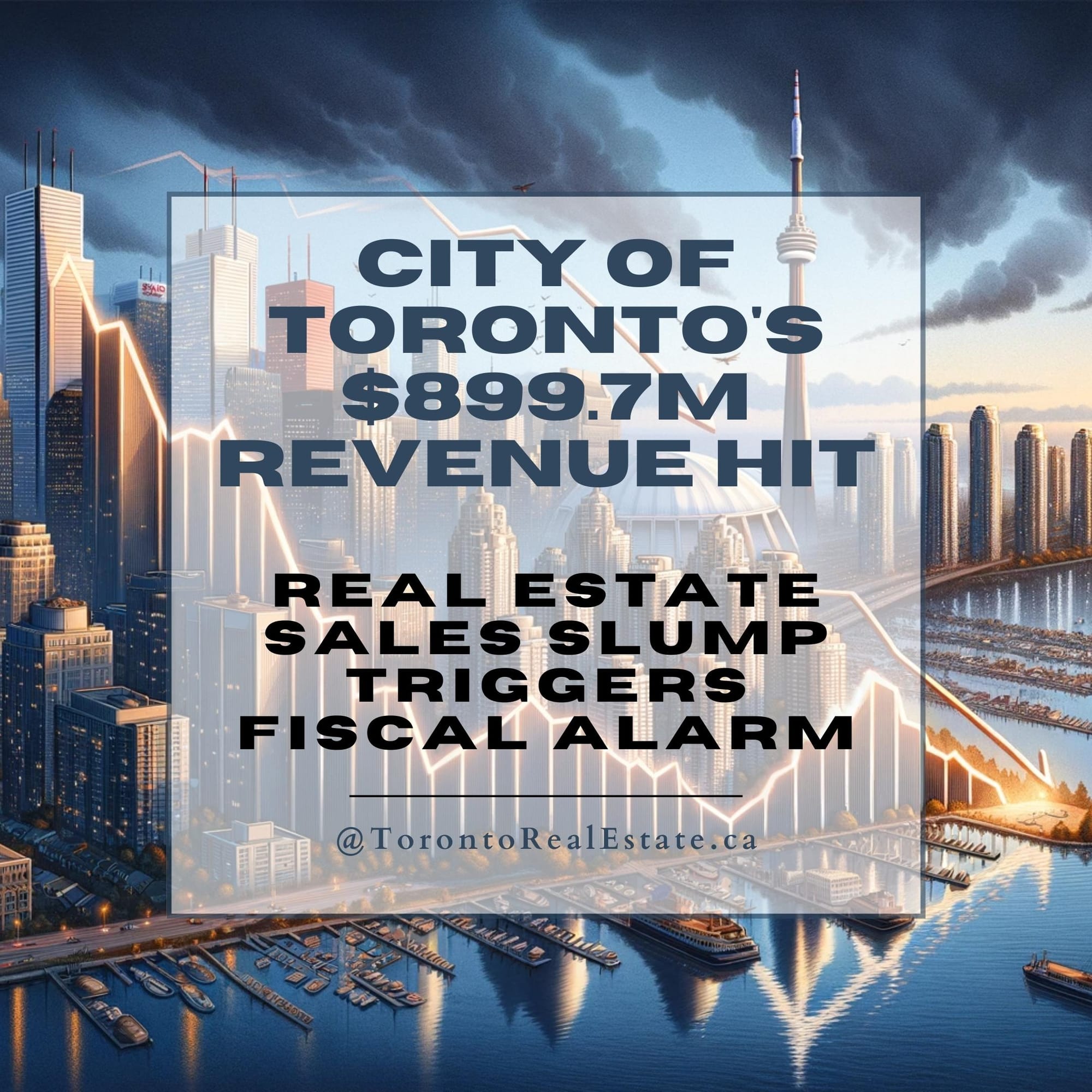
Toronto has long relied on the real estate market as a significant source of revenue, particularly through land transfer taxes.
However, recent trends indicate a downturn in home sales, leading to concerns over potential impacts on the city's budget and funding for essential services.
The Role of Land Transfer Taxes in Toronto's Revenue
The Municipal Land Transfer Tax (MLTT) has been a cornerstone of Toronto's revenue generation since its inception in 2008.
It's levied on all real estate transactions within the city, effectively doubling the tax burden alongside the Provincial Land Transfer Tax.
For instance, as of August 2023, the average property price in Toronto was $1,005,945, meaning a significant portion of revenue from each sale goes to the city.
Recently, the City of Toronto approved a new graduated MLTT rate structure to take effect on January 1, 2024.
This revision introduces higher tax rates for properties above $3 million, with the highest bracket being properties over $20 million at a 7.5% tax rate. This move aims to generate additional revenue in light of the city's financial challenges, which include an estimated $1.5 billion operating budget pressure and a $29.5 billion need for a 10-year Capital Plan.
The Current Real Estate Climate and Its Implications
The Toronto Regional Real Estate Board (TRREB) reported a 49% decline in home sales in November compared to the previous year, a trend that has been consistent in recent months.
This decline coincides with rising interest rates, affecting affordability and market dynamics. Additionally, the average selling price of homes, including detached houses and condos, has seen a significant decline.
Estimated Revenue Loss Due to Slowdown in Home Sales
With 110,000 total home sales in Toronto for 2022 and considering the 49% decline in home sales, the City of Toronto faces a substantial estimated revenue loss.
Based on the average Municipal Land Transfer Tax (MLTT) rate and the average property price, suggests a potential total revenue loss of approximately $899.7 million due to the slowdown in sales.
- Average Property Price in Toronto: $1,005,945
- Average MLTT Rate: 1.6594% (This is half of the total Land Transfer Tax payable, as both Provincial and Municipal Land Transfer Taxes are applicable in Toronto)
The average MLTT revenue per sale = Average Property Price × Average MLTT Rate
= $1,005,945 × 0.016594 ≈ $16,694 - Estimated Decline in Home Sales: 49%
Assuming an average of 10,000 sales per month, total sales in a normal year = 10,000 sales/month × 12 months = 120,000 sales
Estimated decline in number of sales = Total Sales in a Normal Year × Decline Percentage
= 120,000 × 49% ≈ 58,800 sales - Total Estimated Revenue Loss: Estimated Decline in Sales × Average MLTT Revenue Per Sale
= 58,800 sales × $16,694 ≈ $981,527,898
Potential Impacts on Toronto's Budget
A continued downtrend in home sales could have multiple consequences:
- Reduced Revenue from MLTT: Fewer transactions mean less revenue from land transfer taxes, which are vital for funding city services and projects.
- Budget Shortfalls and Service Cuts: With a reduced revenue stream, Toronto might face budget shortfalls, leading to cuts in services or delays in capital projects.
- Impact on Long-Term Financial Health: The city's ability to address long-term financial obligations, including infrastructure and community services, could be compromised.
- Policy Shifts and New Revenue Tools: To mitigate the impact, the city has considered various measures, including increasing the Vacant Home Tax rate and exploring additional land transfer taxes for foreign buyers or owners of multiple properties in Toronto.
The decline in Toronto's real estate transactions presents a complex challenge for the city's financial health.
The reliance on land transfer taxes as a major revenue source becomes precarious in a slowing market & this situation calls for innovative strategies and perhaps a diversification of revenue sources to ensure the city's economic stability and the continued provision of essential services.
What are your thoughts on this problem that Toronto is facing?
Let me know in the comments below!
Rylie C>
Comments